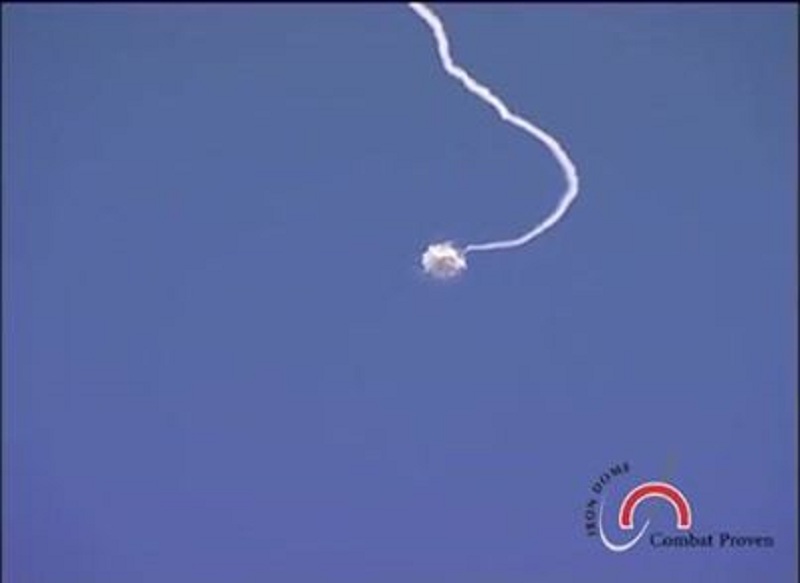Iron Dome (kippat barzel) is a mobile all-weather air defense system developed by Rafael Advanced Defense Systems and Israel Aerospace Industries. The system is designed to intercept and destroy short-range rockets and artillery shells fired from distances of 4 kilometres (2.5 mi) to 70 kilometres (43 mi) away and whose trajectory would take them to a populated area. Iron Dome was declared operational and initially deployed on 27 March 2011 near Beersheba.

The systems achieved international fame during the country’s 2012 and 2014 Gaza Strip conflicts. But they also triggered controversy about their true performance. On 7 April 2011, the system successfully intercepted a BM-21 Grad launched from Gaza for the first time. Five Iron Dome systems served during Israel’s 2012 Operation Pillar of Defense against Gaza. They claimed 421 rocket interceptions. That’s 85 per cent of the rockets they engaged. Nine systems participated in 2014’s Operation Protective Edge. They claimed 735 rocket and mortar shell interceptions. That’s 92 per cent of those engaged.

The typical air defense missile battery consists of a radar unit, missile control unit, and several launchers, all located at the same site. Conversely, Iron Dome is built to deploy in a scattered pattern. Each launcher, containing 20 interceptors, is independently deployed and operated remotely via a secure wireless connection. Reportedly, each iron dome battery is capable of protecting an urban area of approximately 150 square kilometers. In addition to their land-based deployment, Iron Dome batteries will in the future be deployed at sea, where they will protect off-shore gas platforms in conjunction with Israel’s Barak 8 missile system. Iron Dome is part of a future multi-tiered missile defense system that Israel is developing, which will also include Arrow 2, Arrow 3, Iron Beam, Barak 8 and David’s Sling as early as 2018.














